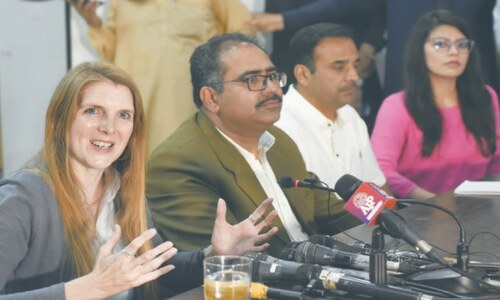ISLAMABAD: National Health Services (NHS) Minister Saira Afzal Tarar admitted on Wednesday that healthcare facilities in Pakistan are inadequate, and the available healthcare facilities are overburdened.
Speaking at the inauguration of a Bone Marrow Transplant Centre in Bhara Kahu, Ms Tarar said remote parts of the country have ever poorer access to facilities.
“Another important factor is the persistently low population-to-hospital-bed ratio. The private sector is expensive and out of pocket expenditure is 86pc. One of the major issues is that most of the hospitals are concentrated in large cosmopolitan [areas], whereas the population is growing rapidly.
The burden of non-communicable and communicable diseases has increased, which needs enhanced treatment facilities,” she said.
The minister said the Prime Minister’s National Health Programme is now being expanded to the entire country, andiron enrolled people in every district would be able to receive free treatment. Ms Tarar said that at present, there are just a few bone marrow transplant centres in the Pakistan, and do not meet the country’s requirement.
She said the best strategy is to work towards the prevention of thalassaemia major, which can be achieved through raising public awareness about the disease, the detection of thalassaemia carriers - particularly in thalassaemic families, the genetic counselling of thalassaemic carries and prenatal diagnosis of thalassaemia major.
The head of the centre, Dr Akbar Niazi, said around 5,000 children with thalassaemia major are born in Pakistan every year. The total number of children with thalassaemic major in Pakistan is 100,000, while the cost of medical treatment is Rs15,000 per month.
There are three kinds of thalassaemic: minor, major and intermedia. Thalassaemia major is a lifelong condition, while someone with thalassaemic intermedia could get thalassaemia major at any time. An individual with thalassaemia minor is a carrier of the disease, and can transmit it genetically.
Thalassaemia causes the body to stop producing red blood cell, which is why patients require blood transfusions once or twice a month, as well as medication worth thousands of rupees. The only cure for the disease is a bone marrow transplant, which is not only expensive but also requires a donor. Thalassaemia can be detected with a simple blood test.
Published in Dawn, November 9th, 2017














































Dear visitor, the comments section is undergoing an overhaul and will return soon.